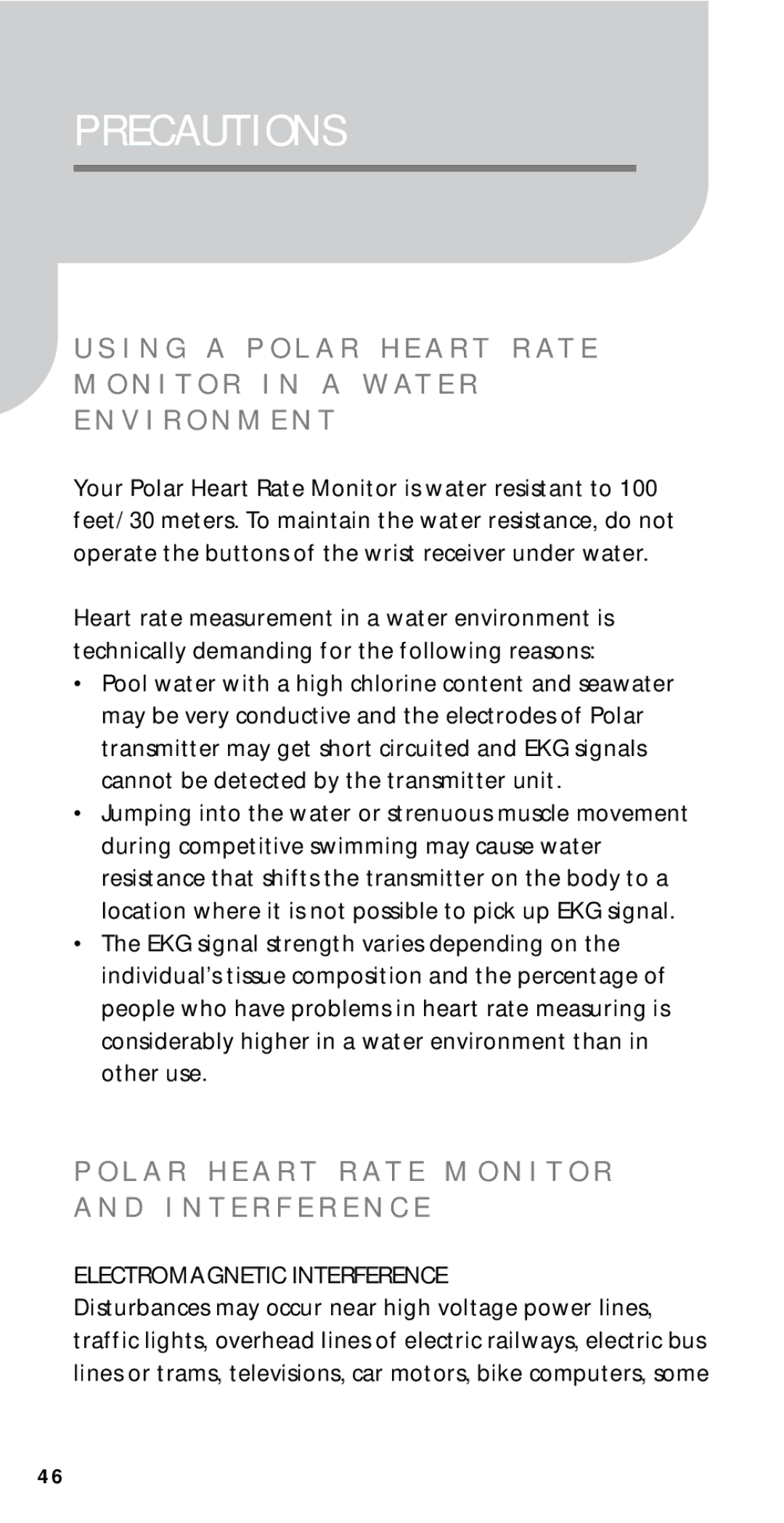
PRECAUTIONS
U S I N G A P O L A R H E A R T R A T E M O N I T O R I N A W A T E R
E N V I R O N M E N T
Your Polar Heart Rate Monitor is water resistant to 100 feet/ 30 meters. To maintain the water resistance, do not operate the buttons of the wrist receiver under water.
Heart rate measurement in a water environment is technically demanding for the following reasons:
•Pool water with a high chlorine content and seawater may be very conductive and the electrodes of Polar transmitter may get short circuited and EKG signals cannot be detected by the transmitter unit.
•Jumping into the water or strenuous muscle movement during competitive swimming may cause water resistance that shifts the transmitter on the body to a location where it is not possible to pick up EKG signal.
•The EKG signal strength varies depending on the individual’s tissue composition and the percentage of people who have problems in heart rate measuring is considerably higher in a water environment than in other use.
P O L A R H E A R T R A T E M O N I T O R A N D I N T E R F E R E N C E
ELECTROMAGNETIC INTERFERENCE
Disturbances may occur near high voltage power lines, traffic lights, overhead lines of electric railways, electric bus lines or trams, televisions, car motors, bike computers, some
46
